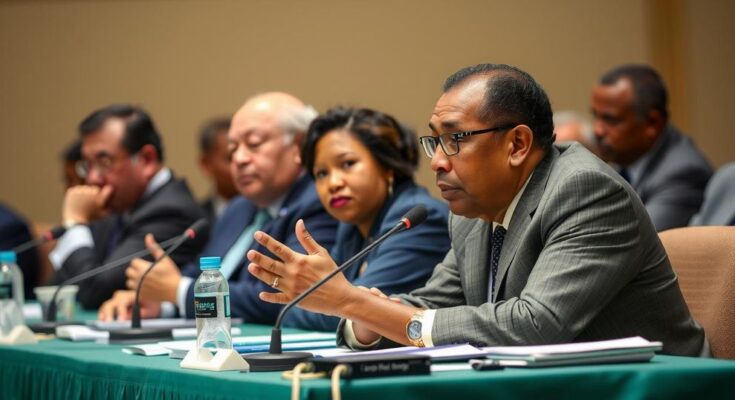Prime Minister James Marape of Papua New Guinea expressed the country’s intention to return to UN climate talks, which it boycotted this year over concerns regarding forest conservation priorities. He emphasized the importance of countries with high carbon footprints supporting forest management initiatives. The nation will participate in COP30 in Brazil next year and support Australia’s bid to co-host COP31 in 2026, provided forest issues are prioritized.
In a recent announcement, Papua New Guinea’s Prime Minister James Marape pledged the nation’s return to United Nations climate summits after opting out of this year’s talks held in Azerbaijan, which he criticized for their ineffectiveness. The Prime Minister emphasized the need for enhanced focus on forest conservation as a critical aspect of climate discussions. He noted that Papua New Guinea intends to participate in COP30 next year in Brazil and will advocate for financial accountability from nations contributing significantly to carbon emissions. Marape highlighted that meaningful climate negotiations cannot occur without recognizing the importance of forestry in regulating atmospheric carbon levels. He expressed keen support for the Australian bid to co-host COP31 in 2026, provided forest management remains a central theme in conversations.
Papua New Guinea is recognized for its extensive rainforest areas, which are crucial for global ecological health, often referred to as the “lungs of the Earth.” The nation has been particularly affected by climate change, given its susceptibility to natural disasters and its geographical isolation. Despite these challenges, the country boycotted the recent UN climate conference due to grievances regarding the treatment of forest stakeholders. The Prime Minister’s commitment to re-engage at future climate talks highlights the imperative of integrating environmental stewardship into international climate policies.
The commitment made by Prime Minister James Marape to return to UN climate talks underscores Papua New Guinea’s dedication to advocating for climate action focused on forest conservation. As the nation prepares for the COP30 summit in Brazil, it aims to hold large carbon-emitting countries accountable for their environmental responsibility. This stance not only reflects the country’s vulnerability to climate change but also emphasizes the critical role of forests in combating global warming. Furthermore, potential collaboration with Australia for COP31, contingent on prioritizing forestry, indicates a strategic approach to international environmental negotiations.
Original Source: www.france24.com




